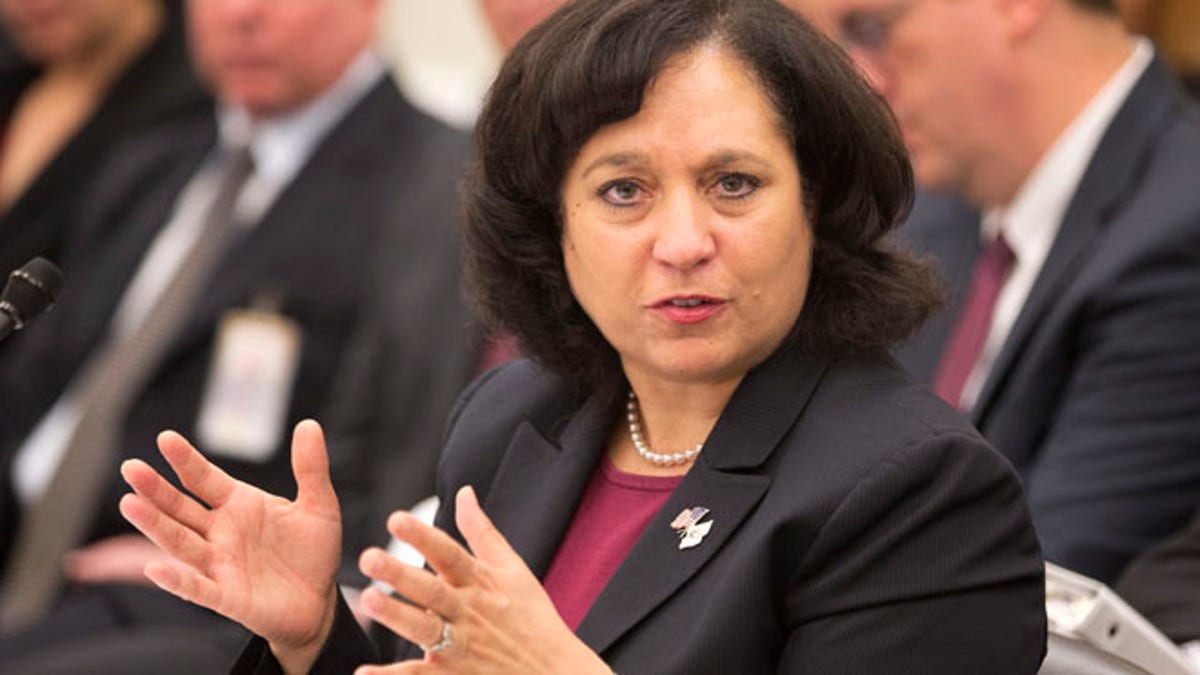
April 12, 2013: Drug Enforcement Administration (DEA) Administrator Michelle Leonhart testifies on Capitol Hill in Washington.
The Drug Enforcement Administration abandoned an internal proposal to use surveillance cameras for photographing vehicle license plates near gun shows in the United States to investigate gun-trafficking, the agency's chief said Wednesday.
DEA Administrator Michelle Leonhart said in a statement that the proposal memorialized in an employee's email was only a suggestion, never authorized by her agency and never put into action. The AP also learned that the federal Bureau of Alcohol, Tobacco, Firearms and Explosives did not authorize or approve the license plate surveillance plan.
Automated license plate scanners take pictures of every vehicle that passes their field of view and record the information in a database that can be used to track a vehicle's movements over time.
Federal, state and local police agencies routinely use the cameras mounted on patrol cruisers or in fixed locations, such as utility poles or busy intersections. Collectively, they capture the movements of millions of vehicles each day. Private companies, including tow truck agencies, also use them.
The scanners have raised significant privacy concerns even though they generally only record cars and trucks driving on public roads. There are no consistent, national rules that govern how police can use the information, how long it can be saved and how widely the records can be shared with other police agencies.
The Wall Street Journal reported the DEA's aborted plan in Wednesday's editions.




